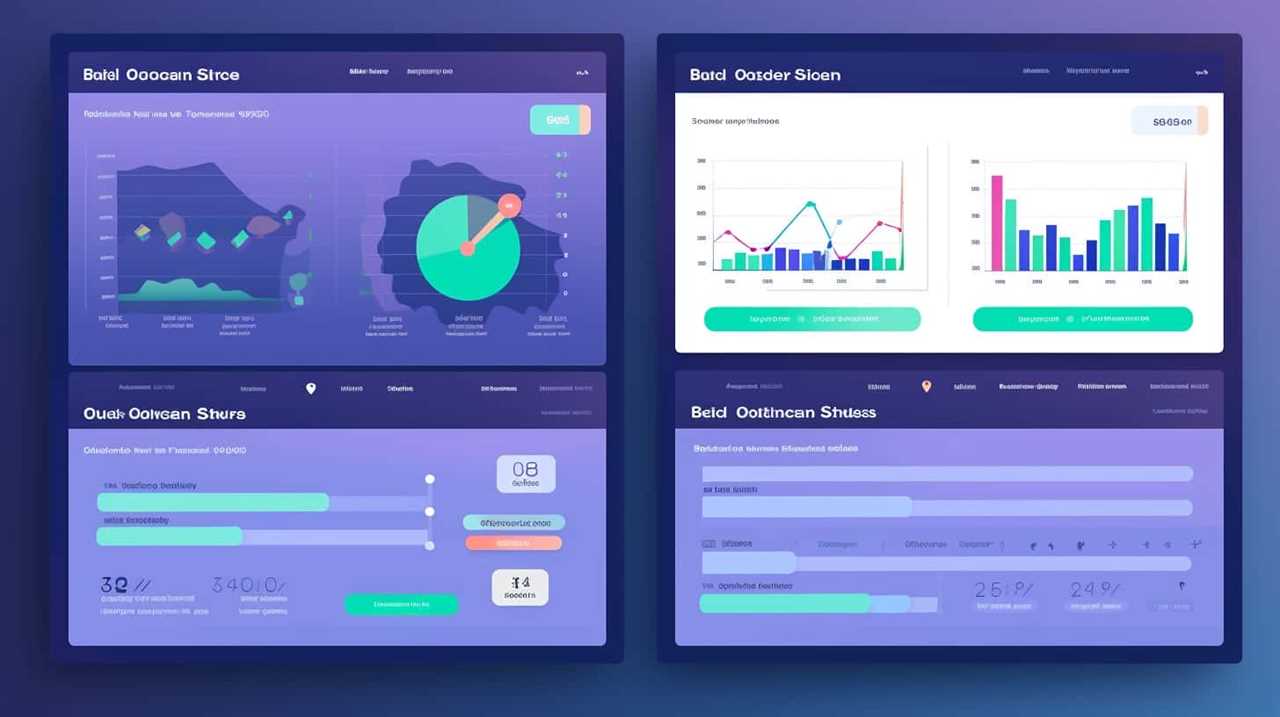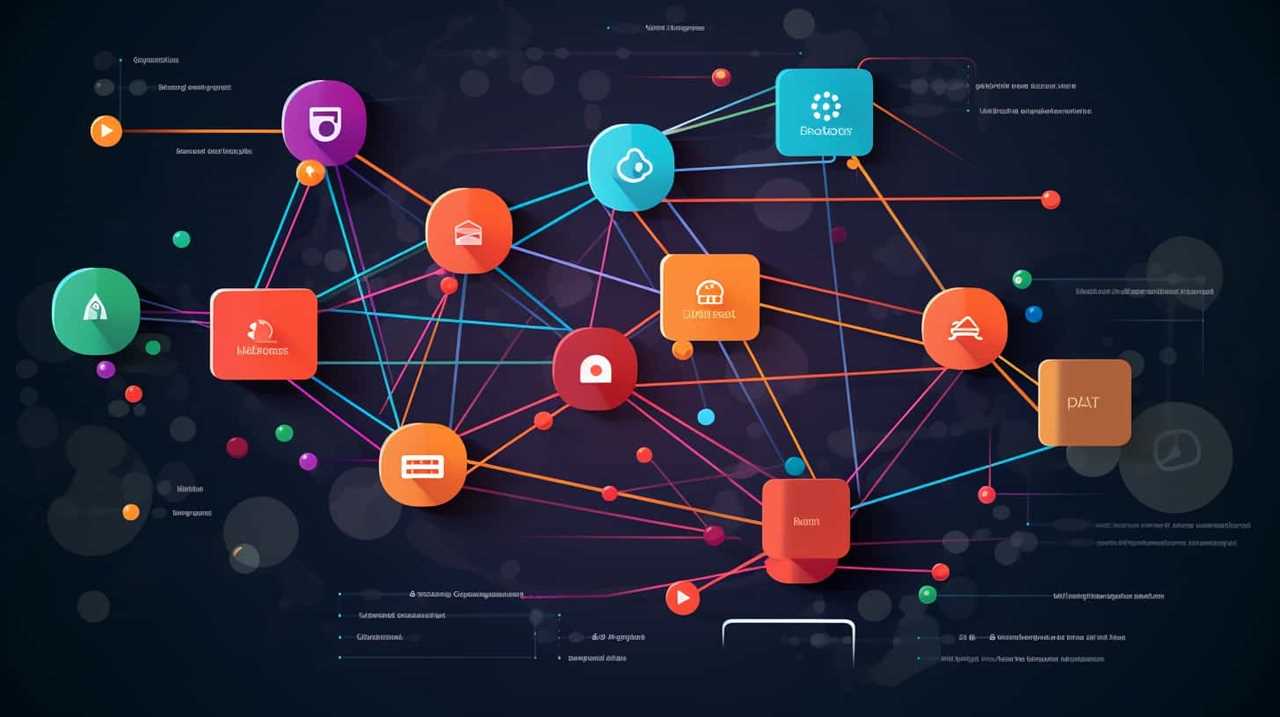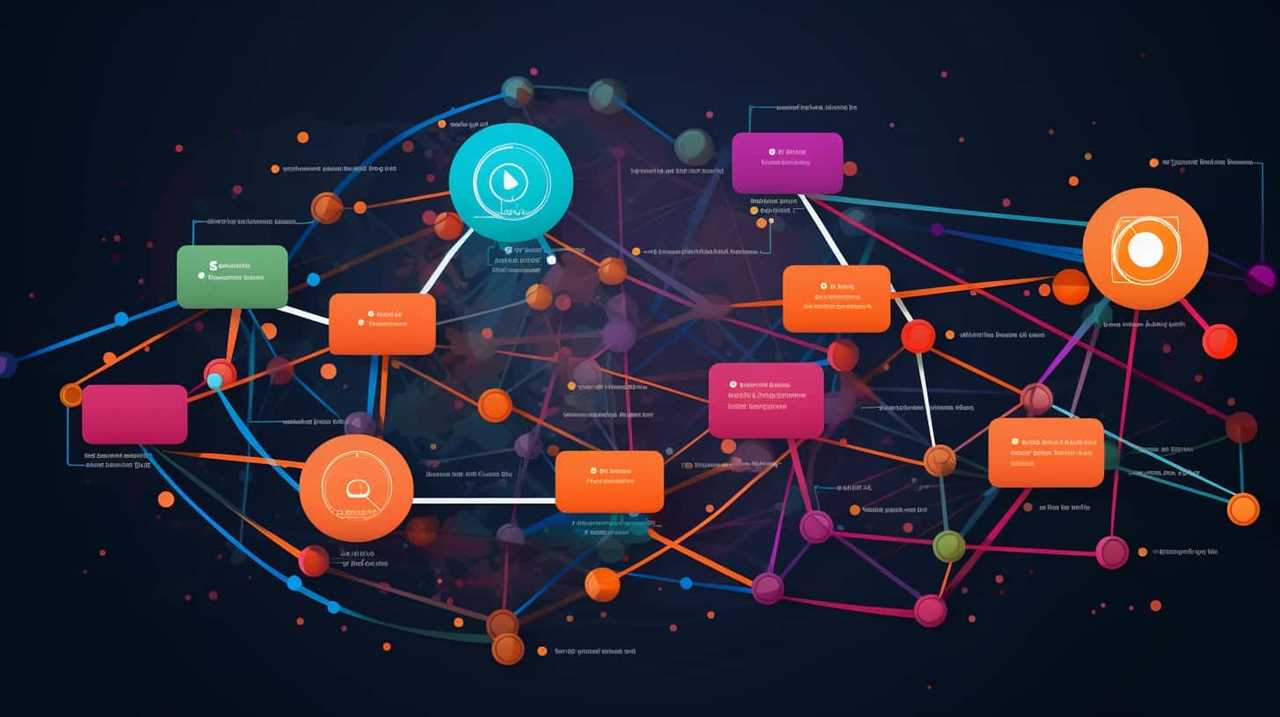Technical SEO
Open AI Revolutionizes ChatGPT4 Turbo: A Game-Changer

We’re excited to share the significant advancements achieved with the latest release of Open AI’s ChatGPT4 Turbo. This innovative language model has surpassed expectations, broadening the scope of what’s possible in AI.
With an extended context length of 128k, equivalent to a 300-page novel, ChatGPT4 Turbo offers an unparalleled depth of understanding.
Integrated into ChatGPT’s Plus plan, developers can now leverage this powerful tool at a reduced cost of just 1 cent per 1,000 tokens, democratizing AI development.
Join us as we explore the limitless possibilities of this game-changing technology.

Key Takeaways
- Context length has been increased to 128k, equivalent to a 300-page novel.
- ChatGPT4 Turbo is integrated into ChatGPT for Plus plan users.
- The cost for developers has reduced to 1 cent per 1,000 tokens.
- GPTs allow for customization and real-time creation of GPT agents without coding knowledge.
Increased Context Length
The increased context length in ChatGPT4 Turbo revolutionizes the capabilities of Open AI’s language model. With a context length of 128k, equivalent to a 300-page novel, ChatGPT4 Turbo offers significant benefits to language models.
Longer context allows for a deeper understanding of conversations, enabling more accurate and contextually relevant responses. This enhanced capability empowers users to engage in complex and nuanced discussions, making ChatGPT4 Turbo a game-changer in natural language processing.
The benefits of longer context in language models are evident in various domains, including customer support, content creation, and research assistance. By considering a broader context, ChatGPT4 Turbo can provide more accurate and meaningful responses, resulting in improved user experiences and increased productivity.
The extended context length opens up new possibilities for leveraging the power of language models in mastering complex tasks and achieving greater efficiency.

Integrated Into Chatgpt Plus Plan
Now let’s delve into the integration of ChatGPT4 Turbo into the ChatGPT Plus plan, a significant milestone in Open AI’s language model advancement.
This integration brings forth a host of capabilities offered by ChatGPT4 Turbo and provides numerous benefits to Plus plan users.
With ChatGPT4 Turbo, users can now enjoy an increased context length of up to 128k tokens, equivalent to a 300-page novel. This expanded context allows for more in-depth conversations and a better understanding of user inputs.
Additionally, the cost has been reduced to just 1 cent per 1,000 tokens for developers, making it more affordable to utilize the advanced capabilities of ChatGPT4 Turbo.

Reduced Cost for Developers
Moving forward with our discussion on the integration of ChatGPT4 Turbo into the ChatGPT Plus plan, let’s explore the significant benefit of reduced cost for developers.
Open AI has made an impressive cost reduction, bringing down the price to 1 cent per 1,000 tokens for developers. This reduction in cost is a game-changer for developers who want to leverage the power of ChatGPT4 Turbo in their applications. With this reduced cost, developers can now access the advanced capabilities of ChatGPT4 Turbo without breaking the bank.
It opens up new possibilities for creating innovative and sophisticated conversational AI experiences, all at a more affordable price. This cost reduction is a clear demonstration of Open AI’s commitment to empowering developers and enabling them to build cutting-edge applications with ease.
Updated Knowledge Cutoff
Continuing our exploration of ChatGPT4 Turbo’s features, let’s delve into the topic of the ‘Updated Knowledge Cutoff’ and its implications for users.

OpenAI has recently updated the knowledge cutoff for ChatGPT4 Turbo to April 2023. This means that the model’s training data now includes information up until that date, allowing it to provide more up-to-date responses.
The impact on data accuracy is significant as it ensures that ChatGPT4 Turbo is equipped with the latest information available at the time of its training.
Users can rely on the model to provide relevant and current insights, making it a valuable tool for research, decision-making, and staying informed about recent developments.
This update demonstrates OpenAI’s commitment to improving the quality and usefulness of their models.

Improved Regular Updates
We are thrilled to announce that OpenAI has implemented improved regular updates for ChatGPT4 Turbo, enhancing its performance and ensuring the model stays up-to-date with the latest information. This update brings several benefits for developers, ensuring they have access to the most accurate and relevant knowledge. The table below highlights the advantages of these improved regular updates:
Benefits for Developers 1. Accurate Information Developers can rely on ChatGPT4 Turbo to provide the most up-to-date and accurate knowledge, allowing them to create more informed and reliable applications. 2. Improved Performance With regular updates, ChatGPT4 Turbo can continually improve its performance, delivering better responses and more accurate results to developers. 3. Staying Ahead By staying up-to-date with the latest information, developers can stay ahead of the competition and ensure their applications are always at the cutting edge of knowledge and understanding.
These improved regular updates empower developers to create more advanced and sophisticated applications, providing them with the tools they need to excel in their work.
GPTs for Personalization
Our ability to personalize GPTs has transformed the way we interact with AI. With GPTs for personalization, we can now create customized models without any coding knowledge.
Open AI has even demonstrated the real-time creation of a GPT agent specifically designed for startup founders. This agent can be trained on uploaded text, such as speeches, to provide tailored responses and insights.

Open AI has also showcased integrations of GPTs with platforms like Canva and Zapier, offering functionalities such as editing event invitations. These advancements open up new possibilities for personal and company use of GPTs, empowering users to create AI models that meet their specific needs.
Real-time GPT agent creation provides a dynamic and efficient way to harness the power of AI for personalized interactions.
Real-time GPT Agent Creation
An exciting feature of Open AI’s ChatGPT4 Turbo is the ability to create a GPT agent in real-time. This means that users can train and customize their GPT agents on the spot, without any delays.
Here are some key points about real-time GPT agent creation:

- Instant Training: With real-time GPT agent training, users can quickly generate a personalized model without any coding knowledge required.
- Canva Integration: Open AI has showcased GPT integrations with Canva, allowing users to edit event invitations and other graphical content seamlessly.
- Rapid Customization: The GPT agent can be trained on uploaded text, such as speeches, enabling users to tailor the agent’s responses to specific contexts.
- Increased Efficiency: Real-time GPT agent creation streamlines the customization process and eliminates the need for time-consuming iterations.
- Enhanced User Experience: By enabling real-time GPT agent creation, Open AI empowers users to have more control and flexibility in their interactions with the AI system.
This real-time capability, combined with integrations like Canva, opens up new possibilities for creating dynamic and personalized AI experiences.
Training GPTs on Uploaded Text
To train GPTs on uploaded text, users can easily customize their models with specific content. This real-time personalization feature allows for the creation of highly tailored and specialized models without the need for coding knowledge.
The benefits of customized models are numerous. Firstly, they enable users to train GPTs on their own uploaded text, such as speeches or documents, allowing for a more personalized and relevant output. This customization enhances the accuracy and specificity of the generated responses.
Additionally, customized models can be integrated with other platforms and tools, such as Canva and Zapier, providing users with a seamless and efficient workflow. By incorporating uploaded text into the training process, GPTs become more versatile and adaptable, opening up new possibilities for various applications and industries.

GPT Integrations With Canva and Zapier
We can seamlessly integrate GPTs with platforms like Canva and Zapier, enhancing the versatility and efficiency of our workflow.
With the Canva integration, we can now edit event invitations and create visually appealing designs directly within the GPT interface.
Similarly, the Zapier integration allows us to automate tasks and connect GPTs with various other applications, expanding the functionality of our customized GPT agents.
This integration opens up possibilities for streamlining our processes, saving time, and improving productivity.

By leveraging the power of Canva and Zapier, we can create stunning visuals and automate repetitive tasks, all while utilizing the capabilities of GPTs to generate high-quality content.
This integration truly revolutionizes our ability to collaborate and create in a more seamless and efficient manner.
GPT Integration and Functionality
With the seamless integration of GPTs into various platforms like Canva and Zapier, our workflow gains enhanced versatility and efficiency. We now have the ability to browse the internet using GPTs, allowing us to gather information and resources without leaving the interface. This browsing capability opens up a world of possibilities for research, fact-checking, and content creation.
Additionally, GPTs can be utilized for data analytics, enabling us to analyze and derive insights from large datasets. This functionality enhances our decision-making process and empowers us to make data-driven choices.

Whether it’s finding relevant information or gaining valuable insights from data, GPT integration provides us with powerful tools to optimize our workflows and achieve mastery in our field.
Enterprise License for GPTs
The enterprise license for GPTs expands our capabilities, allowing us to harness the full potential of these powerful models without limitations. With the enterprise license, we can unlock a range of benefits and create custom GPT applications tailored to our specific needs.
Here are some advantages of the enterprise license:
- Flexibility: The license enables us to utilize GPTs for both private and public purposes, giving us the freedom to deploy them as required.
- Customization: We can create personalized models without the need for coding knowledge, allowing us to develop unique and tailored solutions.
- Revenue Sharing: The upcoming GPT store will provide an opportunity for us to share and monetize our popular models, fostering a collaborative and supportive community.
- Extensive Integration: GPTs can be seamlessly integrated into various platforms and tools, such as Canva and Zapier, expanding their functionality and enhancing our workflow.
- Enhanced Capabilities: The enterprise license empowers us with advanced features like Whisper V3, a text-to-speech model, and the ability to browse, create images, and perform data analytics with ChatGPT.
With the enterprise license, we can take full advantage of GPTs, unlocking their potential to revolutionize our work and drive innovation.

GPT Store Launching
Expanding on the advantages of the enterprise license, the launch of the GPT Store introduces a collaborative platform for sharing and monetizing popular GPT models. The GPT Store opens up new opportunities for developers to showcase their models and generate revenue through partnerships. With the potential for partnerships, developers can collaborate with other organizations to create innovative applications and solutions. Additionally, the GPT Store offers a revenue sharing model, allowing developers to earn income from the popularity of their models. This incentivizes the creation of high-quality and valuable GPT models, benefiting both the developers and the users of the models. By providing a platform for sharing and monetizing GPT models, the GPT Store enhances the ecosystem of AI development and fosters creativity and innovation in the field.
GPT Store Potential Partnerships GPT Store Revenue Sharing Collaboration with organizations Incentivizes developers Opportunities for innovation Earn income from models Enhances AI development Fosters creativity
Whisper V3 Integration
We have integrated Whisper V3, a powerful text-to-speech model, into ChatGPT, allowing us to enhance the mobile version with speech capabilities. This integration brings several benefits to the ChatGPT experience:
- High-quality speech synthesis: Whisper V3 is known for its natural and human-like speech output, providing a more immersive and engaging conversational experience.
- Accessibility: Users can now interact with ChatGPT through speech, making it easier for those with visual impairments or for situations where typing is inconvenient.
- Multimodal interactions: The integration of Whisper V3 enables ChatGPT to not only process text but also generate speech, expanding its range of functionalities.
- Improved user experience: With speech capabilities, users can have a more interactive and dynamic dialogue with ChatGPT, enhancing the overall user experience.
- Mobile-friendly: Whisper V3 integration ensures that ChatGPT on mobile devices can now deliver speech responses, making it even more convenient for users on the go.
With Whisper V3 capabilities integrated, ChatGPT is now equipped with advanced speech functionalities, providing a more versatile and accessible conversational AI experience.
ChatGPT’s Enhanced Developer Tools
With the integration of Whisper V3 and the enhanced capabilities it brings, our team is excited to delve into the discussion of ChatGPT’s Enhanced Developer Tools.

One of the notable features is API integration, which allows developers to seamlessly incorporate ChatGPT into their own applications and systems. This integration opens up a wide range of possibilities for customization and innovation.
Additionally, ChatGPT now offers Visual Studio compatibility, enabling game developers to leverage the power of ChatGPT in their game development process. By providing guidance and assistance within Visual Studio, developers can create interactive and engaging experiences with ease.
These enhancements greatly enhance the developer experience and empower them to unlock the full potential of ChatGPT in their projects.
Open AI’s Empowering Achievements
Continuing the discussion from the previous subtopic on ChatGPT’s Enhanced Developer Tools, we’re now excited to highlight Open AI’s empowering achievements.

- Open AI enables users to build a wide range of applications, expanding the possibilities of AI technology.
- Despite initial Skynet concerns, Open AI’s advancements have surpassed expectations, demonstrating responsible and controlled development.
- With a context length equivalent to a 300-page novel, Open AI’s ChatGPT4 Turbo opens up new avenues for future applications.
- Users are encouraged to share their plans for building GPTs, fostering collaboration and innovation within the AI community.
- Open AI empowers developers with extensive capabilities, providing tools and resources to harness the full potential of AI technology.
Open AI’s achievements not only address Skynet concerns but also pave the way for exciting future applications, making AI a powerful tool in the hands of developers.
Frequently Asked Questions
How Does the Increased Context Length in Chatgpt4 Turbo Impact Its Performance and Capabilities?
The increased context length in ChatGPT4 Turbo enhances performance by improving response quality. It also expands capabilities, allowing for the accomplishment of new tasks and functionalities.
Can You Provide More Details About the Integration of Chatgpt4 Turbo Into the Chatgpt Plus Plan?
The integration of ChatGPT4 Turbo into the ChatGPT Plus plan enhances capabilities and value for users. It provides benefits such as improved performance, expanded context length, and access to advanced features.
How Does the Reduced Cost for Developers Affect the Accessibility and Usage of Chatgpt4 Turbo?
The reduced cost for developers greatly enhances the accessibility and usage of ChatGPT4 Turbo. It allows more developers to utilize the powerful features, leading to widespread adoption and increased innovation in various applications.

What Does the Updated Knowledge Cutoff of April 2023 Mean for Users of Chatgpt4 Turbo?
The updated knowledge cutoff of April 2023 in ChatGPT4 Turbo benefits users by providing more recent information. The increased context length enhances performance, allowing for a deeper understanding and more comprehensive responses.
How Do the Improved Regular Updates in Chatgpt4 Turbo Prevent the Knowledge Base From Falling Behind and What Benefits Does It Offer to Users?
Improved regular updates in ChatGPT4 Turbo prevent the knowledge base from falling behind by providing users with up-to-date information. This benefits users by ensuring they have access to the latest knowledge and can make informed decisions.
Conclusion
In conclusion, Open AI’s release of ChatGPT4 Turbo marks a significant milestone in AI technology. With an extended context length of 128k and a reduced cost for developers, this language model offers unparalleled depth and accessibility.
One interesting statistic to note is that ChatGPT4 Turbo’s knowledge cutoff has been updated to April 2023, ensuring up-to-date and reliable information. This showcases Open AI’s commitment to staying ahead and providing users with the most current and dynamic AI capabilities.

The future of personalized GPT models is truly limitless.
Technical SEO
Why Is My Seo Not Improving

Feeling exasperated by your SEO endeavors? We empathize with your situation. Regardless of the relentless effort we put in, our SEO outcomes have been disappointing.
But fear not, fellow SEO enthusiasts! In this article, we’ll uncover the reasons why our SEO isn’t improving. From technical issues to inadequate keyword research, we’ll delve into the nitty-gritty of what’s holding us back.
So grab a cup of coffee and join us on this quest for SEO mastery.
Key Takeaways
- Website speed optimization is crucial for improving SEO performance.
- Thorough keyword research and optimization are essential for driving organic traffic to the website.
- A well-structured and easy-to-navigate website enhances user satisfaction and improves SEO.
- Creating high-quality, relevant, and valuable content is necessary for improved SEO rankings.
Technical Issues Affecting SEO Performance
Technical issues can significantly impact our SEO performance. One of the key technical factors that affect SEO is website speed. Search engines prioritize websites that load quickly because users value fast-loading pages. Slow loading times can lead to higher bounce rates and lower search engine rankings. Therefore, optimizing website speed is crucial for improving SEO.
Another important technical aspect is mobile optimization. With the increasing use of mobile devices, search engines now prioritize mobile-friendly websites. Websites that aren’t optimized for mobile may experience lower rankings and reduced visibility in search results.
To ensure optimal SEO performance, it’s essential to address technical issues such as website speed and mobile optimization. By focusing on these factors, we can enhance our website’s visibility and improve overall SEO results.
Now, let’s explore another crucial aspect of SEO – inadequate keyword research and optimization.
Inadequate Keyword Research and Optimization
To address the issue of inadequate keyword research and optimization, we must understand the importance of selecting the right keywords to improve our SEO performance. A solid keyword strategy is crucial for driving organic traffic to our website.
It involves conducting thorough competitor analysis to identify the keywords they’re targeting and understanding the search volume and competitiveness of those keywords. By analyzing our competitors, we can gain insights into their successful SEO tactics and identify opportunities to optimize our own website.
Inadequate keyword research can lead to targeting keywords with low search volume or high competition, resulting in poor visibility in search engine rankings. Therefore, investing time and effort into comprehensive keyword research and optimization is essential for improving our SEO performance and driving more targeted traffic to our website.
Poor Website Structure and Navigation
When it comes to improving our SEO, one common issue that can hinder our progress is having a poor website structure and navigation.
The design and layout of our website play a crucial role in providing a seamless user experience. A well-structured and easy-to-navigate website not only enhances user satisfaction but also helps search engines crawl and index our pages more efficiently.
A poorly designed website with complex navigation can confuse users and make it difficult for them to find the information they’re looking for. This can lead to high bounce rates and negatively impact our SEO efforts.
To ensure optimal website design and user experience, we should focus on organizing our content logically, using clear and descriptive URLs, and implementing user-friendly navigation menus. By addressing these issues, we can lay a strong foundation for our SEO strategy.
However, a poor website structure and navigation aren’t the only factors that can hinder our SEO progress. In the next section, we’ll discuss the importance of high-quality and relevant content.
Lack of High-Quality and Relevant Content
When it comes to SEO, the quality of your content matters. High-quality content not only attracts users, but it also helps search engines understand the relevance of your website.
In order to improve your SEO, you need to focus on creating valuable and relevant content that meets the needs of your target audience.
Content Quality Matters
We need more high-quality and relevant content to improve our SEO. Content creation is a critical aspect of any SEO strategy. Here are two reasons why content quality matters:
- Better User Engagement: High-quality content that’s informative, engaging, and well-written keeps users on our website longer. It provides value to users and encourages them to spend more time exploring our site. This increases user engagement metrics, such as time on page and bounce rate, which are important factors in SEO ranking algorithms.
- Improved Search Visibility: When our content is relevant and addresses the needs of our target audience, it’s more likely to rank higher in search engine results pages (SERPs). Search engines prioritize content that’s valuable, authoritative, and trustworthy. By creating high-quality content, we can increase our chances of ranking higher for relevant keywords and attracting organic traffic.
Relevance Attracts Users
To attract more users and improve our SEO, it’s crucial to address the lack of high-quality and relevant content.
User engagement and social media impact are key factors in attracting and retaining users. High-quality content that’s relevant to the target audience not only increases user engagement but also encourages them to stay on our website longer.
By providing valuable and informative content, we can establish ourselves as an authority in our industry and build trust with our users. This, in turn, will lead to increased user engagement, higher conversion rates, and ultimately improved SEO rankings.
To achieve this, we need to conduct thorough keyword research, optimize our content for search engines, and consistently produce high-quality and relevant content that resonates with our target audience.
SEO Needs Valuable Content
Addressing the lack of high-quality and relevant content is crucial for improving our SEO. Content optimization for SEO plays a vital role in attracting organic traffic to our website. To optimize our content, we need to focus on the following:
- Keyword research: Identifying the right keywords helps us create content that aligns with what our target audience is searching for.
- On-page optimization: Optimizing title tags, meta descriptions, headings, and URL structures ensures that search engines can understand the content and rank it appropriately.
Additionally, the importance of user engagement in SEO can’t be overstated. Engaging content that provides value to users encourages them to spend more time on our website, reducing bounce rates and increasing conversions. By creating high-quality and relevant content, we can improve our SEO performance and provide a better user experience.
As we address the issue of lack of high-quality and relevant content, it’s also important to consider the impact of insufficient backlinks and off-page optimization on our SEO.
Insufficient Backlinks and Off-Page Optimization
When it comes to SEO, one of the key factors that can hinder improvement is the lack of quality backlinks. Without a strong network of backlinks from authoritative and relevant websites, search engines may not view your site as trustworthy or credible.
Additionally, ignoring off-page optimization strategies, such as social media promotion and guest blogging, can further contribute to the insufficiency of backlinks and hinder your SEO progress.
To improve your SEO, it’s crucial to prioritize acquiring high-quality backlinks and implementing effective off-page optimization techniques.
Lack of Quality Backlinks
We have noticed a significant lack of quality backlinks in our SEO strategy, resulting in insufficient backlinks and suboptimal off-page optimization. This is a critical issue that needs to be addressed promptly in order to improve our SEO performance.
The absence of quality backlinks hinders our website’s authority and credibility in the eyes of search engines, which ultimately affects our rankings and visibility. To rectify this, we need to implement effective link building techniques such as guest posting on reputable websites, which can provide valuable backlinks and drive targeted traffic to our site.
Additionally, we should explore other off-page optimization strategies such as social bookmarking, directory submissions, and influencer outreach to further enhance our online presence and authority.
Failing to address this lack of quality backlinks will result in missed opportunities for higher rankings and increased organic traffic.
Now, let’s delve into another critical issue: ignoring off-page optimization.
Ignoring Off-Page Optimization
To improve our SEO performance, it’s crucial that we not ignore off-page optimization, especially when it comes to addressing insufficient backlinks and off-page optimization.
Off-page optimization refers to activities that take place outside of our website but still have a significant impact on our search engine rankings. One key aspect of off-page optimization is building high-quality backlinks. These backlinks serve as a signal to search engines that our website is trustworthy and authoritative. Implementing effective link building strategies can help us obtain these valuable backlinks.
Additionally, engaging in social media activities can also contribute to off-page optimization. By actively participating in social media platforms and promoting our content, we can increase our online visibility and drive more traffic to our website.

Ignoring off-page optimization can hinder our SEO efforts and prevent us from achieving higher rankings in search engine results.
Failure to Track and Analyze SEO Metrics
One common reason for a lack of improvement in our SEO is a failure to track and analyze the important metrics.
Tracking the effectiveness of our SEO efforts is crucial for understanding what’s working and what needs improvement. It allows us to identify trends, measure the impact of our strategies, and make data-driven decisions.
Analyzing data provides valuable insights into the performance of our website, keywords, and content. By examining metrics such as organic traffic, bounce rate, and conversion rate, we can determine which areas require optimization and prioritize our efforts accordingly.
Additionally, tracking and analyzing SEO metrics enable us to compare our performance against competitors and identify opportunities for growth.
Neglecting this crucial step hinders our ability to make informed decisions and achieve the desired results.
Frequently Asked Questions
How Long Does It Usually Take to See Improvements in SEO Performance?
On average, it takes time to see improvements in SEO performance due to various factors. Factors affecting SEO improvements include website optimization, content quality, backlinks, competition, and search engine algorithm updates.
Can I Improve My Website’s SEO Without Focusing on Keyword Optimization?
Improving website SEO doesn’t solely rely on keyword optimization. Alternative strategies, such as content optimization, can greatly impact SEO performance. By focusing on creating high-quality, relevant content, we can enhance our website’s visibility and attract organic traffic.
Are There Any Tools or Resources Available to Help Me Track and Analyze My SEO Metrics?
We found that using SEO metrics tracking and SEO analysis tools can help us identify areas for improvement. By analyzing data and making strategic adjustments, we can optimize our SEO efforts for better results.
Is It Necessary to Have a High Number of Backlinks for Good SEO Performance?
Having a high number of backlinks is not the sole factor for good SEO performance. Backlink quality and effective link building strategies are more important in improving SEO.
What Are Some Common Technical Issues That Can Negatively Affect SEO Performance?
Common technical issues affecting SEO include broken links, slow page load times, and improper URL structures. To fix these problems, optimize your website’s code, update outdated plugins, and conduct regular site audits.
Conclusion
In conclusion, it seems that despite our best efforts, our SEO performance continues to lag behind. It’s almost amusing how technical issues, inadequate keyword research, poor website structure, lack of high-quality content, insufficient backlinks, and failure to track metrics all conspire against our quest for online visibility.
It’s like a strategic game, where every move should be carefully calculated and executed flawlessly. Alas, it seems we still have much to learn and improve upon in the intricate world of SEO.
Technical SEO
3 Elite Local SEO Services to Optimize Your Map Presence

Seeking to enhance your digital visibility? We have you covered!
In this article, we’ll be diving into three elite local SEO services that will optimize your map presence.
With our expertise in local business listing optimization, review management and generation, and location-based keyword targeting, we’ll help you dominate the local search results.
Don’t miss out on the opportunity to master your online presence and attract more customers.
Let’s get started!
Key Takeaways
- Local business listing optimization is essential for enhancing map presence and improving search engine rankings.
- Managing and responding to customer feedback promptly can help generate positive reviews and build trust and credibility.
- Incorporating location-specific keywords in website content and meta tags can increase visibility in local search results and attract a highly targeted audience.
- Map presence and organic search results work together to drive customer engagement and increase website traffic.
Local Business Listing Optimization
To enhance your map presence, we prioritize local business listing optimization by ensuring accurate and comprehensive information.
Local business citation management plays a crucial role in this process, as it involves managing and updating your business information across various online directories and platforms.
By consistently monitoring and maintaining your citations, we can ensure that your business is accurately represented online, which boosts your visibility in local search engine marketing.
Our team of experts will work diligently to optimize your business listings by providing accurate and up-to-date information, such as your business name, address, phone number, and website. This won’t only improve your search engine rankings but also enhance customer trust and credibility.
With our local business listing optimization services, you can maximize your map presence and attract more potential customers to your business.
Now, let’s move on to the next crucial aspect of your online reputation: review management and generation.
Review Management and Generation
Now, let’s delve into the important aspect of managing and generating reviews to further enhance your online reputation and map presence.
Customer engagement is crucial for the success of any business, and online reviews play a significant role in building trust and credibility with potential customers.
Effective review management involves monitoring and responding to customer feedback promptly. This demonstrates your commitment to customer satisfaction and shows that you value their opinions.
Generating positive reviews can be achieved through various strategies, such as encouraging satisfied customers to leave reviews, providing exceptional service, and addressing any negative feedback promptly and professionally.
Online reputation management is a critical component of your overall marketing strategy, as it directly impacts your visibility and credibility in local searches.
Location-Based Keyword Targeting
Continuing from our discussion on review management and generation, let’s now explore the powerful strategy of location-based keyword targeting to further optimize your map presence.
This technique involves incorporating keywords that are specific to your target location, increasing the chances of your business appearing in local search results. By utilizing geo-targeted advertising strategies and location-based content marketing, you can attract a highly targeted audience that’s more likely to convert into customers.
Here are two key benefits of location-based keyword targeting:
- Increased visibility: By including location-specific keywords in your website content, meta tags, and business listings, you can improve your chances of appearing in local search results, thus increasing your visibility to potential customers in your area.
- Higher conversion rates: When you incorporate location-based keywords, you attract customers who are actively searching for products or services in your area. This leads to higher conversion rates as these individuals are more likely to make a purchase or visit your physical store.
Frequently Asked Questions
How Long Does It Typically Take to See Results From Local Business Listing Optimization?
It typically takes time to see results from local business listing optimization. Monitoring and tracking our local SEO efforts is important. When choosing a local SEO service provider, key factors to consider include their expertise and track record.
Are There Any Specific Strategies or Techniques for Generating Positive Online Reviews?
When it comes to generating online reviews, there are several best practices to consider. One effective strategy is to leverage customer testimonials, as they provide authentic and positive feedback that can boost your online reputation.
Can Location-Based Keyword Targeting Be Effective for Businesses in Highly Competitive Industries?
Location-based keyword targeting can be highly effective for businesses in competitive industries. The importance of local citations and leveraging local partnerships cannot be overstated. These strategies optimize visibility and increase chances of success.
Is It Possible to Optimize Multiple Locations for a Single Business on Google Maps?
Yes, it is possible to optimize multiple locations for a single business on Google Maps. We can provide elite local SEO services to optimize your map presence and ensure effective Google Maps optimization for franchises.
Are There Any Risks or Drawbacks Associated With Outsourcing Local SEO Services?
Outsourcing local SEO services can be risky. Challenges may arise from relying on external agencies for local SEO. Potential pitfalls include lack of control, communication barriers, and a disconnect between brand and audience.
Conclusion
In conclusion, optimizing your map presence is crucial for local businesses to thrive in today’s digital landscape.
By utilizing elite local SEO services, such as local business listing optimization, review management and generation, and location-based keyword targeting, you can boost your visibility and attract more customers.
Don’t miss out on the opportunity to stand out among your competitors and dominate the local market.
Invest in these services and watch your business soar to new heights.

Technical SEO
Why Is Technical Seo Needed

Ah, the marvels of technical SEO! It acts as the invisible power enhancing website functionality, increasing visibility on search engines, and substantially expanding organic traffic.
With technical SEO, we ensure that your website is easily crawled and indexed, offering a seamless user experience. Say goodbye to slow loading times and hello to mobile-friendliness.
If you desire mastery in the digital realm, technical SEO is an absolute must. Let’s dive in and uncover why it’s so crucial for your online success.
Key Takeaways
- Technical SEO optimization is necessary for improving website performance, including loading times and navigation, leading to higher user satisfaction and engagement.
- Technical SEO plays a crucial role in enhancing search engine visibility, increasing organic rankings, and attracting more website traffic.
- Optimized page speed and mobile-friendliness are important factors in driving website traffic and achieving business success.
- Technical SEO strategies, such as website indexing, XML sitemaps, and structured data implementation, are essential for making websites more accessible, user-friendly, and visually appealing.
Enhances Website Performance
Enhancing website performance is a crucial aspect of technical SEO that directly impacts user experience and search engine rankings. By improving website loading time and optimizing website architecture, we can ensure that our website is fast, efficient, and user-friendly.
Improving website loading time is essential because users have little patience for slow-loading websites. Research shows that users abandon websites that take longer than a few seconds to load. By optimizing our website’s code, compressing images, and reducing the number of HTTP requests, we can significantly improve loading times.
Optimizing website architecture is another critical factor in enhancing performance. By organizing our website’s content, ensuring logical navigation, and properly structuring URLs, we enable search engines to crawl and index our site more effectively. This, in turn, improves our website’s visibility and accessibility to users.
Improves Search Engine Visibility
Improving search engine visibility through technical SEO is crucial for any website. By optimizing various technical aspects, such as website speed, mobile-friendliness, and structured data, we can increase our chances of achieving higher organic rankings.
This, in turn, leads to increased website traffic and more visibility in search engine results pages, ultimately driving more potential customers to our website.
Higher Organic Rankings
To achieve higher organic rankings and improve search engine visibility, we focus on optimizing technical SEO. By implementing technical SEO best practices, we can enhance our website’s performance and make it more attractive to search engines. This, in turn, can lead to improved click-through rates and increased conversion rates.
Technical SEO involves optimizing various technical aspects of a website, such as its structure, code, and speed. These optimizations help search engines understand and crawl our site more efficiently, ultimately improving its visibility in search results.
When our website ranks higher in organic search results, it’s more likely to attract organic traffic. This increased website traffic can then lead to even higher click-through rates and conversion rates.
Increased Website Traffic
Technical SEO plays a crucial role in boosting website traffic and enhancing search engine visibility. By implementing the right technical strategies, you can increase the number of visitors to your site, ultimately leading to higher conversion rates and improved business success.
Here are three ways technical SEO helps increase website traffic:
- Optimized page speed: A fast-loading website not only improves user experience but also helps search engines crawl and index your pages more efficiently.
- Mobile optimization: With the majority of internet users accessing websites through mobile devices, ensuring your site is mobile-friendly is essential for attracting traffic.
- Proper URL structuring: A well-organized URL structure makes it easier for search engines to understand the content of your pages, resulting in better search engine visibility.
Additionally, technical SEO can also help improve website traffic through conversion rate optimization and social media integration. By implementing these strategies, you can maximize the potential of your website and attract more targeted traffic to your business.
Boosts Organic Traffic
Our website’s technical SEO boosts our organic traffic by optimizing key elements for search engine visibility.
By implementing conversion rate optimization techniques, we ensure that our website is user-friendly and encourages visitors to take desired actions, such as making a purchase or signing up for a newsletter. This not only increases our organic traffic but also improves the overall effectiveness of our website.
Furthermore, our technical SEO strategy focuses on enhancing the quality of our content. By conducting keyword research, optimizing meta tags, and improving page load speed, we provide a seamless user experience, resulting in higher search engine rankings and increased organic traffic.
Ultimately, our dedication to technical SEO helps us attract valuable organic traffic and achieve our business goals.
Maximizes Website Crawlability
By maximizing website crawlability, we ensure that search engines can easily access and index our content, leading to better search engine rankings and increased organic traffic. Improving the crawlability of our website enhances the efficiency of search engine indexing, allowing our content to be discovered and ranked more effectively. Here are three key benefits of maximizing website crawlability:
- It ensures that search engines can find and understand all the pages on our website, increasing the visibility of our content.
- It helps to identify and fix any crawling errors or issues that may be preventing search engines from accessing certain parts of our website.
- It allows us to prioritize and optimize the indexing of our most important pages, ensuring they receive maximum visibility in search results.
By focusing on improving crawlability, we can boost our search engine rankings and drive more organic traffic to our website.
Now, let’s move on to how optimizing website indexing further enhances our SEO efforts.
Optimizes Website Indexing
After maximizing website crawlability, the next step in optimizing technical SEO is to focus on how website indexing can be further enhanced.
Website indexing is the process of search engines like Google analyzing and organizing the content on a website to make it searchable and accessible to users.
To improve website indexing, one important step is to create and submit XML sitemaps to search engines. XML sitemaps provide a roadmap of all the pages on a website, making it easier for search engines to discover and index them.
Additionally, ensuring that important pages are linked properly and have clear and descriptive meta tags can also improve website indexing.
Enhances User Experience
To further enhance user experience, it’s important to consider the impact of technical SEO. Technical SEO not only improves accessibility but also enhances navigation on a website. By implementing technical SEO strategies, websites become more user-friendly and easier to navigate, leading to a positive user experience.
Here are three key ways in which technical SEO enhances user experience:
- Faster page load times: Optimizing website speed not only improves user experience but also reduces bounce rates and increases conversions.
- Mobile responsiveness: Technical SEO ensures that websites are mobile-friendly, allowing users to access and navigate the site seamlessly on different devices.
- Structured data implementation: By using structured data markup, websites can provide rich snippets in search results, making it easier for users to find relevant information quickly.
Increases Website Speed
Optimizing website speed is crucial in technical SEO as it directly impacts user experience. Improving website loading time not only enhances user satisfaction but also reduces bounce rate, keeping visitors engaged and more likely to explore your site further.
A slow-loading website can lead to frustration and abandonment, causing users to leave before even experiencing your content. By optimizing website speed, you can ensure that your site loads quickly and efficiently, providing a seamless browsing experience for your visitors. This can result in higher user engagement, increased page views, and ultimately, improved conversions.
Next, let’s delve into another important aspect of technical SEO: ensuring mobile-friendliness.
Ensures Mobile-Friendliness
Improving website speed not only enhances user satisfaction but also reduces bounce rate, keeping visitors engaged and more likely to explore your site further.
With mobile-friendliness, we can ensure that our website is accessible and enjoyable for users on all devices.
Mobile design and a responsive layout are crucial components of creating a mobile-friendly website. Here are three reasons why mobile-friendliness is essential:
- Improved user experience: A responsive layout ensures that your website adapts to different screen sizes, providing a seamless and user-friendly experience for mobile users.
- Increased visibility in search results: Search engines prioritize mobile-friendly websites, so having a mobile-friendly site can improve your visibility and ranking in search engine results pages.
- Higher conversion rates: Mobile users are more likely to convert into customers if they can easily navigate and interact with your website on their devices.
Frequently Asked Questions
How Does Technical SEO Contribute to Improving Search Engine Visibility?
Technical SEO contributes to improving search engine visibility by optimizing the technical aspects of a website, such as website speed and performance. It complements on-page SEO efforts and ensures that search engines can crawl, index, and understand a website effectively.
What Are Some Common Technical SEO Techniques Used to Boost Organic Traffic?
Technical SEO techniques, such as optimizing site speed, improving mobile responsiveness, and using structured data, can significantly boost organic traffic. These strategies are essential for increasing visibility and driving more targeted traffic to our website.
How Does Technical SEO Maximize Website Crawlability?
Optimizing crawlability is crucial for enhancing website structure. By implementing technical SEO techniques, we can ensure search engine bots can easily navigate and index our site, leading to improved organic traffic and visibility.
Can Technical SEO Improve Website Indexing for All Types of Websites?
Yes, technical SEO can improve website indexing for all types of websites. By implementing technical SEO strategies, we can enhance crawlability, optimize site structure, and ensure search engines can easily index and understand our content. These technical SEO benefits are crucial for website success.
What Are the Key Elements of Technical SEO That Enhance User Experience?
Optimizing speed and incorporating structured data are key elements of technical SEO that enhance user experience. These techniques, like a well-oiled machine, ensure smooth navigation and provide valuable information to users.
Conclusion
In conclusion, technical SEO is an absolute necessity for any website looking to thrive in the digital world.
It enhances performance, improves visibility, boosts organic traffic, maximizes crawlability and indexing, enhances user experience, increases speed, and ensures mobile-friendliness.
Technical SEO is like the secret sauce that takes a website from good to extraordinary, propelling it to the top of search engine rankings and attracting droves of eager visitors.
Don’t miss out on the incredible benefits that technical SEO can bring to your website’s success.
-

 Expert Content Authority6 days ago
Expert Content Authority6 days agoThe Pillar of SEO: Why Content Consistency Matters Most
-

 Learning Center6 days ago
Learning Center6 days agoUncover How To Use ChatGPT to Write Effective Ad Copy
-

 Learning Center1 day ago
Learning Center1 day agoAI in 2024: 10 Things We are NOT Looking Forward To
-

 Holistic SEO2 weeks ago
Holistic SEO2 weeks agoHolistic Local SEO Tactics for Small Businesses
-

 Learning Center1 week ago
Learning Center1 week agoOptimize Your Digital Experience with Akamai CDN
-

 Learning Center2 weeks ago
Learning Center2 weeks agoExperience How GPT-4 Turbo Beats Claude 2: A Review
-

 Learning Center2 weeks ago
Learning Center2 weeks agoMastering SEO through the Google SGE Lens: A Comprehensive Guide
-

 Holistic SEO2 weeks ago
Holistic SEO2 weeks agoHow to Establish Dominance in SEO through Topical Authority















